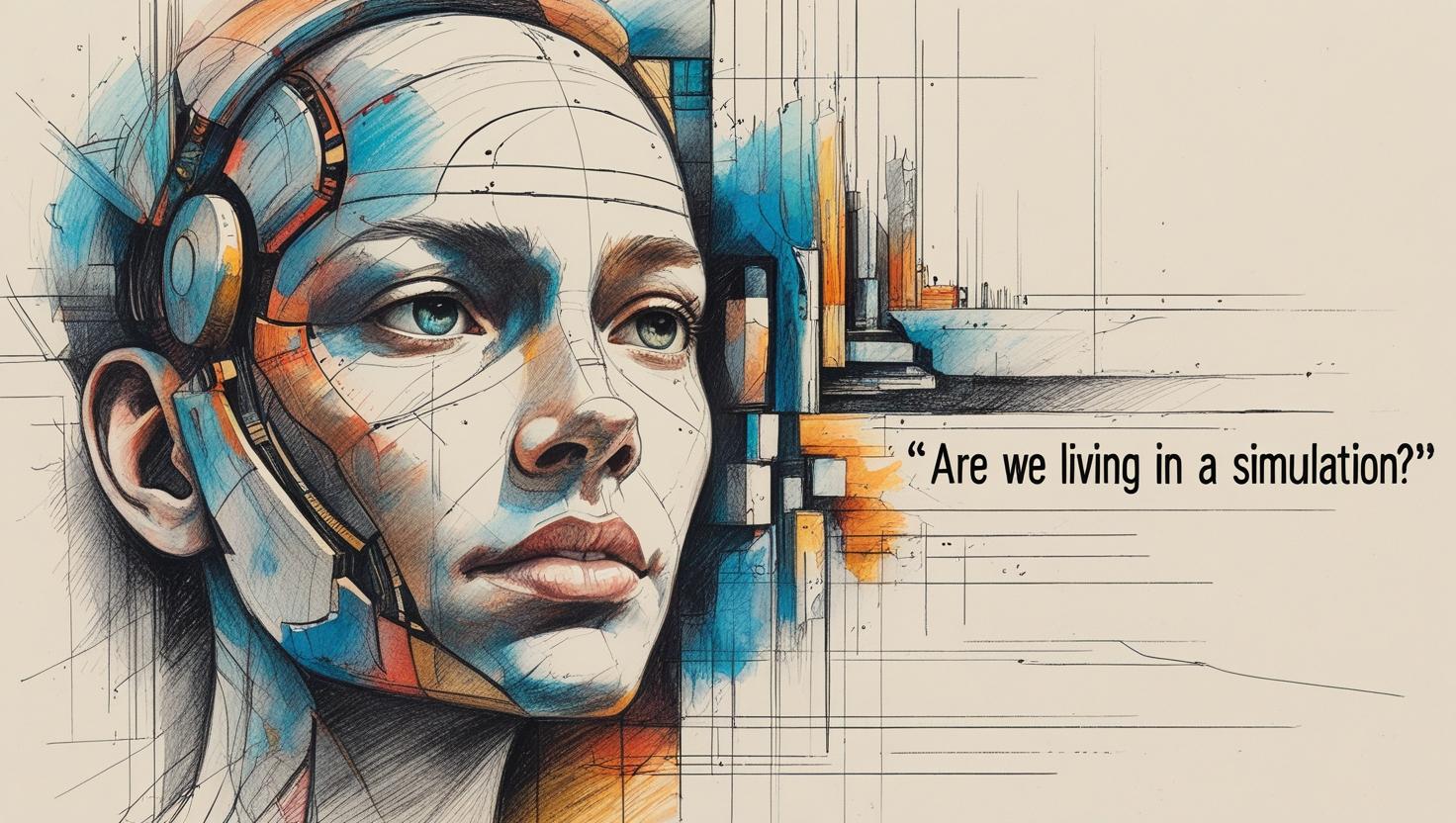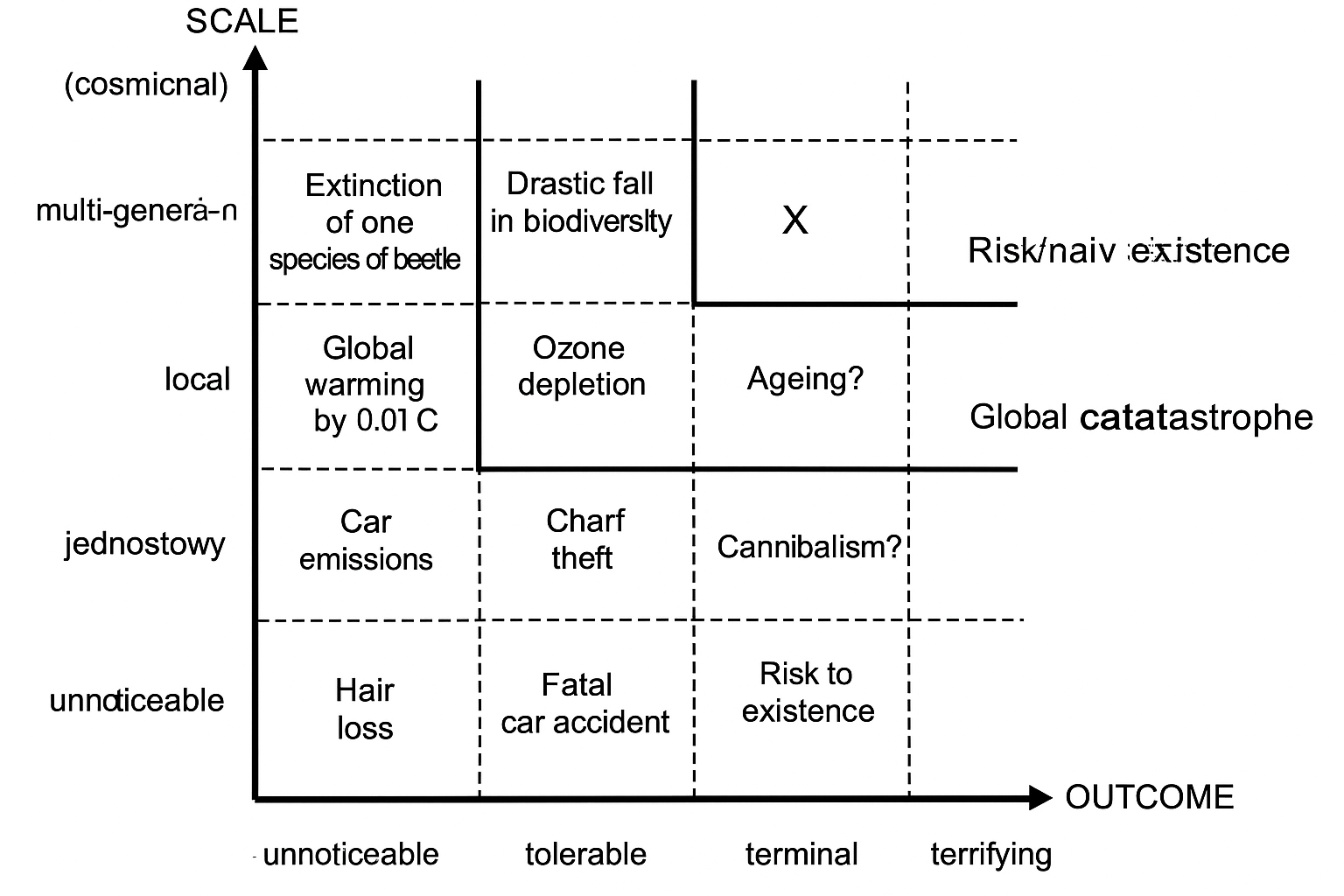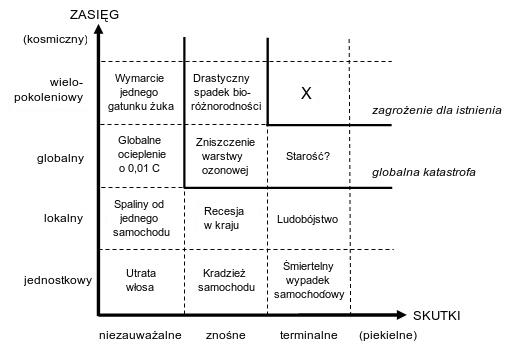Do we live in a simulation?

I think it's a question every one of us has asked. But what if the answer, which once sounded like pure science fiction, is much closer to the truth than we'd like to admit? What if our lives, our consciousness, the entire universe, is simply an advanced program, an intricately constructed simulation?
It's becoming increasingly difficult to dismiss this idea as mere fantasy. When we look closely at the reality surrounding us, we begin to notice unsettling signs suggesting it might not be as "base" as we think. Consider the argument from philosopher Nick Bostrom – if any civilization before us achieved the ability to create such advanced simulations, and it's hard to imagine they wouldn't use such power (whether for research or entertainment), then statistically speaking, it's almost certain that we are in one of them. The number of simulated realities would vastly outnumber the one, "true" reality.

But it's not just statistics. Let's look at the foundations of our reality. The quantum world, with its strange leaps, uncertainty, and behavior resembling pixels on a screen, almost screams that it is something "rendered" on demand, rather than being fundamentally continuous. The speed of light limit? A perfect "processing limit" for a system. And the mathematical elegance of the laws of physics? It's like a perfect source code someone wrote to make everything work cohesively.
We also hear more and more about "glitches in the Matrix" – those small "lapses" in the world's logic, unexplainable coincidences, a feeling of déjà vu that's too intense to ignore. Aren't these just minor bugs in the code, glimpses of our simulation's source code, or perhaps deliberate "easter eggs" left by the creators?
Perhaps our "programmers" are some incredibly advanced civilization that launched our simulation to understand their own past (so-called ancestor simulations), to conduct social experiments, or simply—because they could. To them, we might be like characters in an ultra-realistic video game.
Does this diminish our experiences? Absolutely not. Our feelings, choices, and aspirations are just as real to us, regardless of the nature of the reality in which they exist. Pain is pain, and love is love, even if they are merely strings of data in a supercomputer. But the awareness that we might be part of a larger, artificially created system opens up entirely new perspectives. It makes us wonder if there are "rules of the game" we don't know, whether it's possible to "exit" the simulation, or if our creators sometimes interfere with its course.
Perhaps the next step in our evolution, whether as humanity or as conscious beings, will not be a journey to the stars in our simulated space, but an awakening to the true nature of our existence. And maybe, just maybe, our "creators" are waiting for just that. The world is too strange and too perfectly mathematical to be a product of pure chance. The clues are everywhere; you just have to open your mind.
[PL]
Czy żyjemy w symulacji?
To pytanie zadał sobie chyba każdy z nas. A co jeśli odpowiedź, która kiedyś brzmiała jak czysta fantastyka, jest znacznie bliższa prawdy, niż chcielibyśmy przyznać? Co jeśli nasze życie, nasza świadomość, cały wszechświat, to po prostu zaawansowany program, misternie skonstruowana symulacja?
Coraz trudniej jest odrzucić tę myśl jako zwykłą mrzonkę. Kiedy przyjrzymy się otaczającej nas rzeczywistości, zaczynamy dostrzegać niepokojące znaki, które sugerują, że może ona nie być tak "bazowa", jak nam się wydaje. Pomyślmy o argumencie filozofa Nicka Bostroma – jeśli jakakolwiek cywilizacja przed nami osiągnęła zdolność tworzenia tak zaawansowanych symulacji, a trudno sobie wyobrazić, by z takiej mocy nie skorzystała (choćby dla badań, czy rozrywki), to statystycznie rzecz biorąc, jest niemal pewne, że jesteśmy właśnie w jednej z nich. Liczba zasymulowanych rzeczywistości wielokrotnie przewyższyłaby tę jedną, "prawdziwą".

Ale to nie tylko statystyka. Spójrzmy na fundamenty naszej rzeczywistości. Świat kwantowy, z jego dziwnymi skokami, nieoznaczonością i zachowaniem przypominającym piksele na ekranie, niemal krzyczy, że jest czymś "renderowanym" na żądanie, a nie fundamentalnie ciągłym. Ograniczenie prędkości światła? Idealny "limit przetwarzania" dla systemu. A matematyczna elegancja praw fizyki? To jak doskonały kod źródłowy, który ktoś napisał, by wszystko działało spójnie.
Coraz częściej słyszymy też o "glitchach w Matriksie" – tych drobnych "przeskokach" w logice świata, niewytłumaczalnych zbiegach okoliczności, uczuciu déjà vu, które jest zbyt intensywne, by je zignorować. Czy to nie są drobne błędy w kodzie, przebłyski kodu źródłowego naszej symulacji, a może celowe "easter eggi" pozostawione przez twórców?
Być może nasi "programiści" to jakaś niezwykle zaawansowana cywilizacja, która uruchomiła naszą symulację, by zrozumieć własną przeszłość (tzw. symulacje przodków), przeprowadzić eksperymenty społeczne, lub po prostu – bo mogli. Dla nich możemy być jak postacie w ultra-realistycznej grze komputerowej.
Czy to umniejsza nasze doświadczenia? Absolutnie nie. Nasze uczucia, wybory, dążenia są dla nas tak samo realne, niezależnie od natury rzeczywistości, w której istnieją. Ból jest bólem, a miłość miłością, nawet jeśli są jedynie ciągiem danych w superkomputerze. Ale świadomość, że możemy być częścią większego, sztucznie stworzonego systemu, otwiera zupełnie nowe perspektywy. Każe nam zastanowić się, czy istnieją jakieś "reguły gry", których nie znamy, czy możliwe jest "wyjście" z symulacji, albo czy nasi twórcy czasami nie ingerują w jej przebieg.
Być może następnym krokiem naszej ewolucji, czy to jako ludzkości, czy jako świadomych bytów, będzie nie tyle podróż do gwiazd w naszej zasymulowanej przestrzeni, co przebudzenie się do prawdziwej natury naszej egzystencji. I może, tylko może, nasi "twórcy" właśnie na to czekają. Świat jest zbyt dziwny i zbyt perfekcyjnie matematyczny, by był dziełem czystego przypadku. Poszlaki są wszędzie, wystarczy tylko otworzyć umysł.
